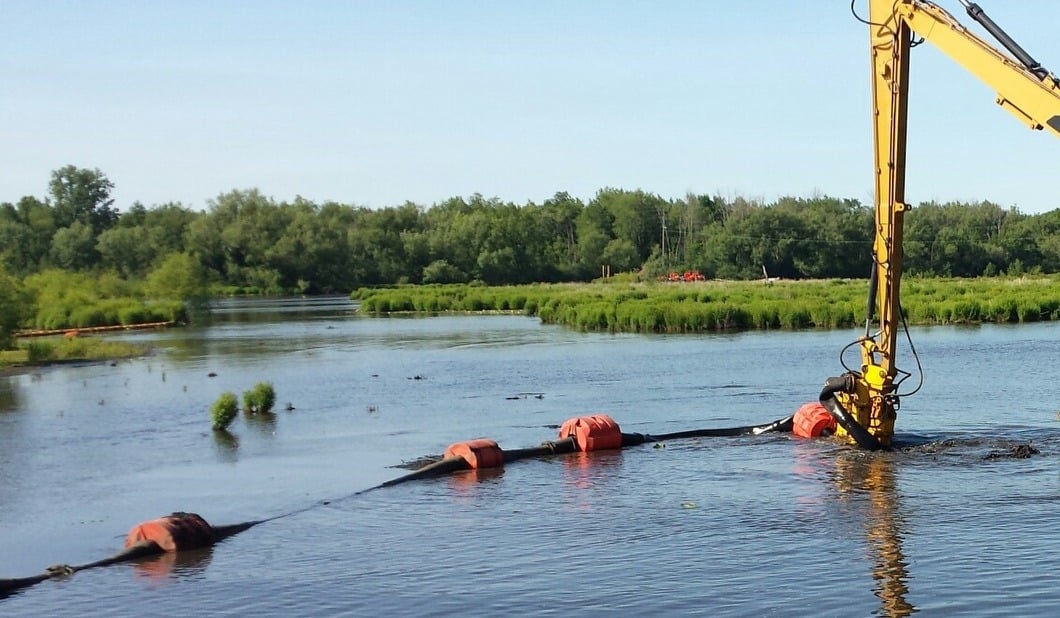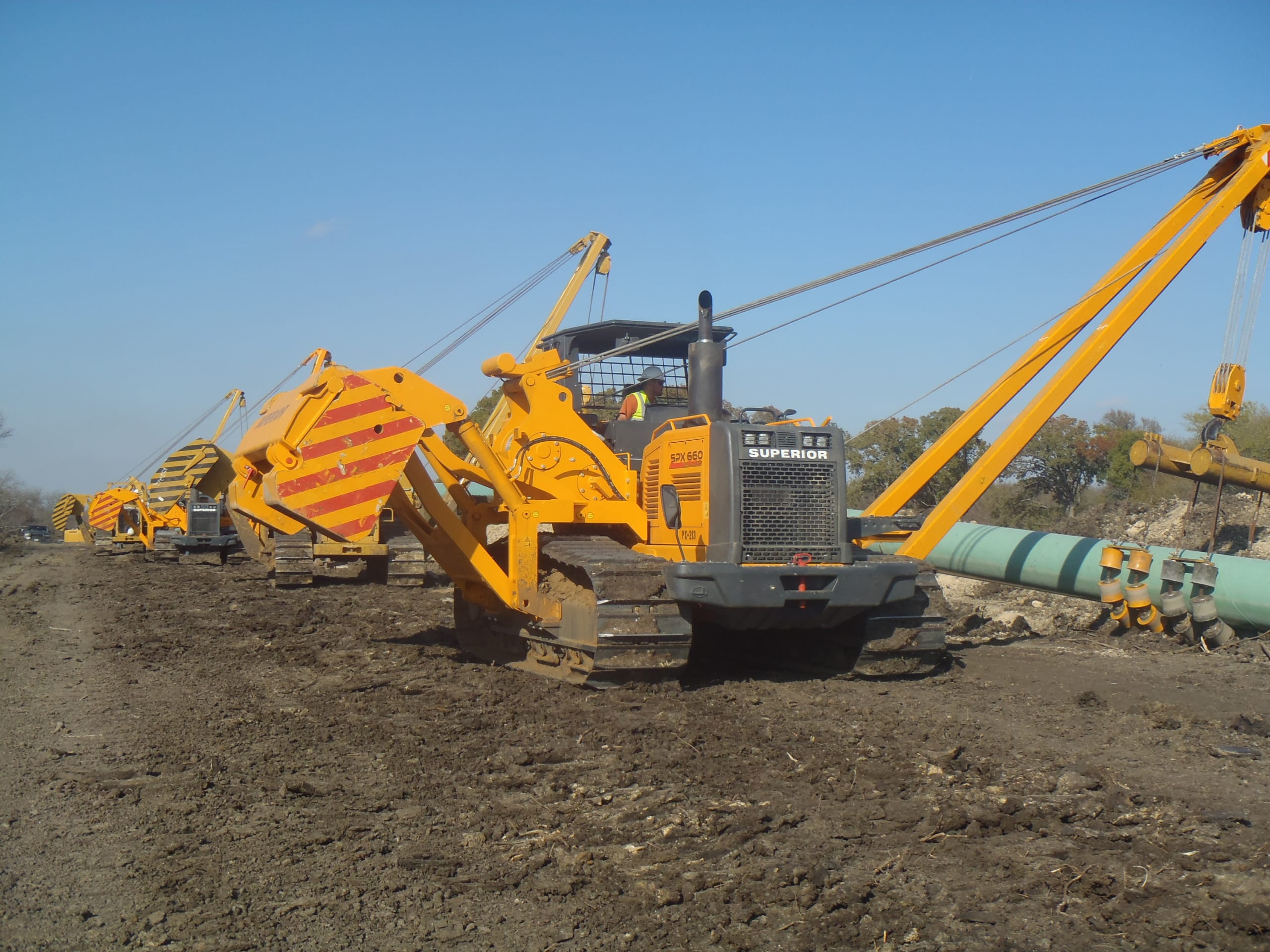How Superior Oilfield Rentals oilfield boosts productivity on-site
Wiki Article
A Comprehensive Overview to the Different Types of Oil Field Equipment and Pipeline Equipment Available
The oil and gas sector relies heavily on specialized devices for effective extraction and transport. Different types of equipment, from piercing rigs to storage space containers, play vital duties in this complicated process. Each tool offers unique functions that add to general functional success. Comprehending these elements is crucial for any individual entailed in the sector. As the industry advances, so as well do the technologies that support it. What developments are on the perspective?
Drilling Rigs: The Backbone of Oil Exploration
Drilling rigs act as the important machinery in the domain name of oil exploration, allowing companies to access hydrocarbon reserves buried deep under the Planet's surface. These rigs come in numerous kinds, consisting of land rigs, offshore rigs, and mobile systems, each made to operate in specific environments. Outfitted with sophisticated technology, drilling rigs can pass through geological developments with accuracy, making sure reliable source removal. The structural stability and functional capabilities of these rigs are crucial, as they must stand up to extreme conditions and substantial pressures. Additionally, the choice of an exploration rig affects the general job expense and timeline, making it a crucial consideration for oil business seeking to enhance their exploration initiatives and take full advantage of productivity in their operations.Pumps: Important for Fluid Activity
In the oil extraction procedure, the function of pumps is considerable, promoting the activity of fluids throughout different stages of production. Pumps are essential for moving crude oil, water, and other fluids from below ground tanks to the surface area and then with pipes to refineries. They are available in various kinds, consisting of centrifugal, positive variation, and submersible pumps, each offering particular functions based on the fluid features and operational needs. Centrifugal pumps are frequently utilized for their efficiency in high-flow applications, while favorable variation pumps succeed in dealing with viscous fluids. The option of pump influences total efficiency, operational safety and security, and maintenance costs. Correct option and maintenance of pumps are vital for enhancing production and reducing downtime in oil field procedures.Valves: Managing Flow and Pressure

Shutoffs play a vital function in managing the circulation and stress of liquids within oil fields and pipes. Different kinds of valves offer unique applications, each designed to fulfill certain functions fundamental for efficient procedure - Superior Oilfield Rentals Texas. Recognizing the characteristics and usages of these shutoffs is crucial for optimizing system efficiency and security
Kinds of Valves
Important components in oil field operations, shutoffs play an important role in controlling the circulation and pressure of fluids within pipelines and tools. Numerous sorts of shutoffs are used to satisfy the varied requirements of oil and gas manufacturing. Usual types consist of gate shutoffs, which provide a straight-line flow and minimal stress drop; globe shutoffs, recognized for their strangling capabilities; and ball valves, identified for their fast on/off control. Furthermore, check valves protect against backflow, while butterfly shutoffs offer a light-weight service for controling flow. Each valve kind is created with specific products and configurations to withstand the harsh conditions often discovered in oil fields, making sure reliability and efficiency in procedures. Comprehending these kinds is critical for reliable system monitoring.Valve Applications and Features
While various types of valves serve distinctive functions, their main applications revolve around controlling circulation and pressure within oil and gas systems. Shutoffs such as gateway, globe, and ball shutoffs control fluid activity, making sure peak efficiency and security. Entrance shutoffs are generally made use of for on/off control, offering marginal circulation resistance. World valves, on the various other hand, deal accurate circulation law, making them ideal for throttling applications. Round valves are preferred for their fast operation and limited sealing abilities. On top of that, stress alleviation shutoffs are crucial for stopping system overpressure, guarding devices integrity. Overall, the proper choice and application of valves boost functional efficiency, ensuring the trustworthy transportation of oil and gas via pipes and handling centers.Compressors: Enhancing Gas Transportation
Compressors play a vital function in the efficient transportation of gas, ensuring that it moves smoothly through pipes over cross countries. These gadgets enhance the pressure of all-natural gas, permitting it to get rid of rubbing and elevation adjustments within the pipeline system. Furthermore, compressors help with the balancing of supply and demand, accommodating fluctuations in consumption and manufacturing rates. Numerous sorts of compressors are utilized in the industry, including centrifugal, reciprocating, and rotating screw compressors, each offering distinct benefits based on the functional demands. Normal upkeep of these compressors is vital to take full advantage of effectiveness and decrease downtime, inevitably adding to a reputable gas transportation network. Their crucial feature highlights the significance of compressors in the total oil and gas infrastructure.Storage Tanks: Safe and Effective Fluid Monitoring
Effective transportation of gas counts on various sustaining systems, one of which is the appropriate administration of tank. These containers play an essential function in securely having liquids, making sure that operational effectiveness is kept while reducing ecological risks. Created from sturdy products, they are made to stand up to high pressures and destructive aspects. Properly sized and purposefully situated, tank assist in the smooth flow of gas and other fluids, avoiding traffic jams in supply chains. Routine maintenance and monitoring are imperative to discover leakages or architectural problems, promoting safety and conformity with regulative requirements. Eventually, the reliable monitoring of tank is important for the overall stability and dependability of the oil and gas industry's fluid handling systems.
Pipeline Systems: Infrastructure for Transportation
Pipeline systems offer as the foundation of the oil and gas industry, facilitating the effective transportation of hydrocarbons over huge ranges. These systems are composed here of various components, including pipelines, valves, pumps, and compressors, all carefully designed to ensure smooth circulation. The products made use of in pipeline construction, typically steel or high-density polyethylene, are selected for longevity and resistance to deterioration. Pipeline networks can cover across land and water, linking manufacturing websites to refineries and distribution. Additionally, advanced modern technology makes it possible for real-time monitoring of flow rates and pressure levels, enhancing functional efficiency. The strategic positioning of these pipelines lessens environmental effect while making the most of resource accessibility, thereby playing a crucial function in meeting power needs globally.Safety And Security Equipment: Making Sure Employee and Environmental Management
The procedure of pipeline systems, while crucial for energy transportation, additionally provides considerable safety challenges for workers and the atmosphere. Security equipment plays a considerable duty in mitigating these risks. Individual protective equipment (PPE) such as safety helmets, handwear covers, and non-slip footwear safeguards employees from physical dangers. In addition, gas detection systems keep track of for leaks, guaranteeing that damaging substances do not position a threat to workers or the surrounding ecological community. Emergency situation closure systems are crucial for rapidly stopping procedures during a dilemma, stopping potential disasters. Spill containment products, including absorbents and barriers, are basic for reducing ecological impact. Overall, buying all-encompassing security tools is important for preserving operational honesty and protecting both employees and the setting in the oil and gas sector.
Regularly Asked Inquiries
Exactly how Do I Choose the Right Oil Field Equipment for My Project?
Selecting the right oil area tools entails examining job specs, budget plan restrictions, and functional requirements. Think about elements such as tools reliability, compatibility with existing systems, and the distributor's online reputation to guarantee peak efficiency and safety.What Are the Maintenance Requirements for Oil Field Equipment?
Maintenance requirements for oil area tools include normal inspections, lubrication, and timely repairs. Operators should additionally follow manufacturer guidelines, screen efficiency metrics, and warranty compliance with safety policies to improve durability and efficiency.
Exactly How Can I Make Sure Compliance With Environmental Rules?
To guarantee compliance with environmental laws, firms must carry out normal audits, carry out ideal techniques, buy training, maintain proper documentation, and stay updated on legislation (Superior Oilfield Rentals). Cooperation with ecological firms can additionally boost adherence to regulationsWhat Is the Average Lifespan of Pipeline Equipment?
The ordinary life-span of pipeline devices commonly ranges from 20 to half a century, relying on factors such as worldly high quality, ecological conditions, and upkeep practices. Normal inspections can significantly influence durability and functional performance.How Do I Safely Deliver Oil Field Equipment to Remote Locations?
Moving oil field devices to remote places requires careful planning, including course analysis, protecting licenses, utilizing appropriate lorries, and ensuring safety protocols are complied with. Correct training and interaction amongst staffs are crucial for effective transport.Report this wiki page